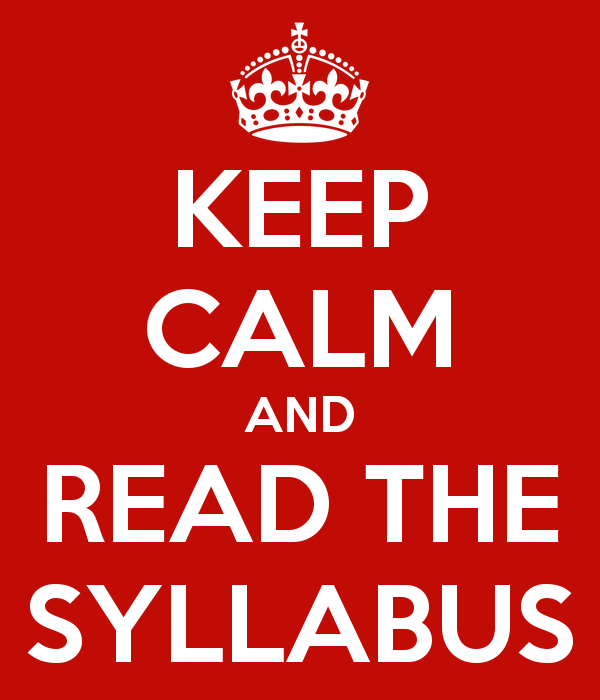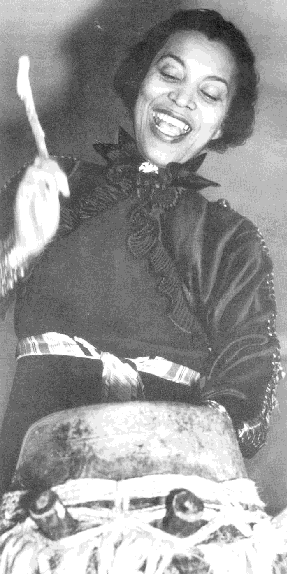
Tag Archives: Pedagogy
The Anthropoliteia #BlackLivesMatter Syllabus Project, Week 25: Kevin G. Karpiak on the banality of police violence

Desk of a Police sergeant in Munich, Germany © Wikimedia Commons
The Anthropoliteia #BlackLivesMatter Syllabus, Week 15: Ashanté Reese on Zora Neale Hurston and Refusing One Dimensional Blackness
The editors of Anthropoliteia are happy to relaunch the second semester of an ongoing series The Anthropoliteia #BlackLivesMatterSyllabus Project, which will mobilize anthropological work as a pedagogical exercise addressing the confluence of race, policing and justice. You can see a growing bibliography of resources via our Mendeley feed. In this entry, Ashanté Reese discusses teaching from Zora Neale Hurston’s writings to explore many dimensions of blackness.

The Anthropoliteia #BlackLivesMatter Syllabus Project, Week 12: Kevin G. Karpiak on the critical potential of an anthropology of police

On Tuesday Sept. 20, around 9 a.m. graffiti was found on the outer wall of EMU’s King Hall depicting hate speech. Picture taken after some writing was removed. (photo credit: Shayler Barnes Jr. / The Eastern Echo)
The Anthropoliteia #BlackLivesMatter Syllabus Project, Week 11: Jaime Alves on “The right and duty to change the world”
Anthropoliteia reacts to #Ferguson
It’s hard to know what exactly to say, to think, to feel or how to react at a time like this; even as a scholar of police. Which is not to say that everything in the case is terribly ambiguous. Quite the opposite: another young black man has been the victim of a deadly and unaccountable state violence in front of our very eyes. I suppose the disorientation lay in how to move forward, and for that I have no strong answers.
Embed from Getty ImagesHaving said that, several of us at Anthropolitiea have been active on Twitter, I imagine in an effort to make sense of exactly that existential question. This is not dissimilar to my own reaction during and after the Trayvon Martin/George Zimmerman affair. Below are some of our thoughts, as we form them:
Trayvon Martin, George Zimmerman and the Anthropology of Police
I’m sure I’m not the only one on this blog who’s been trying to think of a way to approach the whole Trayvon Martin/George Zimmerman fiasco. Like a lot of scholarship, it’s just so hard to figure out what to add to the constant shit-storm of a media frenzy. But in my Police & Society class at EMU we have broached the topic, and the discussion has been both passionate and useful.
I thought I’d share the online discussion question I just prompted my students with. I’m curious to hear what readers of this blog might have to say. Here’s the prompt:
So our discussion seems to have gotten us to an interesting place: on the one hand, the question of what to do with George Zimmerman–did he have the right to be policing his neighborhood? did he have the right to carry and use a gun? did he have the right to suspect and pursue Trayvon?–brings us back to a question we’ve been asking repeatedly in the class… What should be the relationship between “police” and “society,” especially when we consider the use of force/power/gewalt? Should they be fully integral things, so that there’s no distinct institution of policing? Should there be an absolute distinction, so that only a small community can claim the right to police power? If the answer is somewhere in the middle, how would that work?
On the other hand, we’ve also been circulating around the question of freedom and security, norms and rights. Was George Zimmerman policing legitimately when we acted upon his suspicions, regardless of any evidence of law-breaking? Should the goal, the ends, of policing be the maintaince of community norms at the expense of individual liberty, or is a technocratic focus on law enforcement and civil rights the necessary priority of a democratic police force?
Anyone have any thoughts on how we can use some of the ideas and/or authors from this course to help us answer some of these questions?
Resolved: Culture is the Center of the Anthropology of Policing
This is the second entry in my series of posts on the question: “What is the curriculum for the anthropology of policing?” As promised, in this post I will share a syllabus I taught last semester, and follow Kevin’s lead in using critical reflection on my teaching experience as a way to think about the challenges of “canon formation” for the anthropology of policing. Before I do this, however, I should put all my cards on the table and say that I am beginning from a particular assumption about the anthropology of policing. My ‘original position’ (apologies to Rawls) is this: (a) the disciplinary core of anthropology is its concern with culture and, therefore, (b) the integrating core of the anthropology of policing is an anthropological concern with culture. Based on this assumption, I expect the answer to the question of my previous post (i.e. overlap in the syllabi for three hypothetical courses on the anthropology of policing pitched to the distinct audiences of (i) practitioners, (ii) undergraduate liberal arts majors, and (iii) anthropology graduate students) to be “Yes.” And not just “Yes,” but “Yes, there is an overlap. And it consists of a particular literature about the culture of policing.”
So, the ultimate purpose of this exercise in public auto-critique is to rise to the challenge of converting the vague prejudices of an American-cultural-anthropologist into a bibliography of canonical ideas about the culture of policing. The job will be finished when we have assembled a bibliography robust enough to answer critiques registered on behalf of any of the three audiences listed above. And if, at the end of this ordeal, my culturalist prejudices have not been crushed under the jackboot of political economy, or scattered to the winds of the policy community, then I will call myself a winner and buy everyone a drink at the November AAAs.
So, on to the syllabus. It is for a course I taught last semester, called Policing: An International Perspective, as an elective in the University of Hong Kong’s masters program in criminology. This is a popular two-year coursework-based degree “designed as a professional qualification for practitioners in criminal justice and related fields (including NGOs), [but also] open for people with an interest in the field of criminology in general.” The program is housed within a sociology department that awards PHDs in sociology, anthropology and criminology. Thus the experience of working here has thus brought me into contact with all three audiences mentioned above. The course itself enrolled 18 students, about half of whom were serving in what is locally known as the “disciplined forces.” I designed the course before I came to Hong Kong, however. And the lack of a practical familiarity with my audience gave a rather free rein to my personal sense of the how the anthropology of policing fit together as a coherent topic of instruction.
So, without further ado, for your apprasial and critique, here is the syllabus.
Where do you think its grand intellectual vision crumbled most dramatically in its confrontation with the realities of the classroom?
Steering the Teachable Momentum of the Gates Arrest in an Anthropological Direction.
Public discussion of the Gates arrest is all over the place: people with a stake in race issues insist on speaking about race, analysts of governing technologies attempt to bracket race and focus on procedure, libertarians focus on citizen rights, etc. The aggregate effect has been to generate an argument in which the various sides work on reinforcing their respective positions by talking past each other, seemingly avoiding confrontation over any potentially conclusive point of direct disagreement.
For the purpose of teaching anthropology, I think this public cacophony could be channeled into a good class discussion of the nature of social facts, and some of the ways that “symbolic relays” operate in contemporary American culture to structure the outcome of politically tense situations.
For example, we could take a page from the sociology of policing and start from a theoretical distinction between what the police do and what policing does. This means that we can look at “the police” ethnographically – as individuals acting in real-time contexts – and thereby describe them as engaged in an order of interaction (Goffman’s “interaction order”) which exists at several removes from the larger institutional level in which “policing” functions as an element in the reproduction of macro-historical social order. This distinction is a useful framework for asking questions about how these two levels of phenomena – real-time social action and institutionalized social facts – actually relate to one-another in particular instances. In this case, we have a situation where a central point of dispute is whether or not the social fact of race is relevant to the situation on the ground. To focus discussion of the event onto the cultural dynamics by which larger issues are made relevant to social action, we can usefully borrow Marshall Sahlins’ concept of the “symbolic relay,” i.e. symbols which are deployed to “endow the opposing local parties with collective identities and the opposing collectives with local or interpersonal sentiments. In the occurrence, the small-scale struggles are transformed into abstract and irreconcilable causes-to-die-for, their outcome depending now on the larger correlation of forces” (quoting here from the abstract to his short 2005 paper in Anthropological Theory titled “Structural Work,” (password required) more extensive discussion of the concept can be found in his 2004 monograph Apologies to Thucydides). It is, in other words, cultural work that imbues day-to-day events with larger historical significance.
A classroom exercise could be developed around analyzing how various tropes and categories are mobilized by various commentators and participants in the event as “symbolic relays” to frame the larger historical significance of the event of the arrest itself as being “about” race, common-sense, civility, class, citizenship, police procedure, etc. As cursory examples, consider:
“This isn’t about me; this is about the vulnerability of black men in America,” (Gates).
“[Y]ou probably don’t need to handcuff a guy, a middle-aged man who uses a cane, who’s in his own home,” (Obama)
“Gates, as a citizen, has the right to challenge the authority of the police – all Americans have that right.” (http://www.dailykos.com/storyonly/2009/7/25/752126/-Disorderly-Conduct)
“Gates automatically “profiles” white men in uniform as a threat to his outsized ego, even when they are trying to protect his own house!.” (http://www.pr-inside.com/was-barack-obama-crying-in-his-r1407475.htm)
“A good cop respects your rights when you show them their rights. A bad cop tries to convince you to do something stupid so they can put you in jail… They will take advantage of your belligerence, they will take advantage of your anger, they will take advantage of your fears.” (http://www.google.com/hostednews/ap/article/ALeqM5jNR4dcq5sivgbez2rttRVWtTMXoAD99JQMJG0)
“The report alleges that Gates became belligerent and yelled at the officer that “this is what happens to black men in America.” The report further states that Gates called the officer a racist and declared that the officer had no idea whom he was ‘messing with.’ Assuming the prosecution could establish that those factual allegations are true – which Gates vehemently says it could not – it does not appear the government would have any realistic chance of proving its case in a courtroom.” (http://blogs.masslawyersweekly.com/news/2009/07/22/making-legal-sense-of-the-gates-arrest/)
From the obvious point that people disagree as to what this event is “about,” we could move to a finer-grained discussion of how and why various accounts diverge, what kinds of audiences they might be aiming for, and what kinds of pragmatic purposes they might be intended to serve. Ideally, the discussion would leave students with a deeper appreciation for the complexity of the socio-cultural processes which are involved in forming prevailing interpretations of the larger significance of events, and how the work of cultural mediation (i.e. the deployment of symbolic relays) is embedded in and inflected by political and economic circumstances.
Cited references available online
Sahlins, M. (2005). Structural work: How microhistories become macrohistories and vice versa Anthropological Theory, 5 (1), 5-30 DOI: 10.1177/1463499605050866